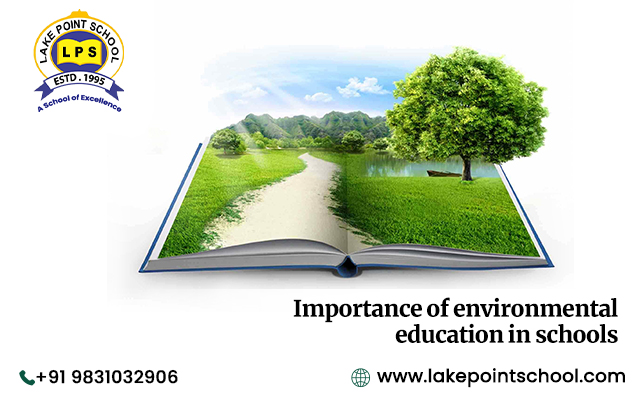Environmental education forms a crucial part of the school curriculum. Know the significance of the same from the teachers of the best CBSE school in Kolkata.
Importance of environmental education in schools
In an era of several environmental concerns, fostering a sense of responsibility in the minds of young children is imperative. Teaching environmental education in schools, therefore, becomes pivotal. Learn the importance of the subject for students from the teachers of the best CBSE school in Kolkata.
What is environmental education?
At its core, environmental education involves the exploration of topics like biodiversity, sustainability, climate change and the interconnectedness of all living beings. This discipline encourages individuals to become profoundly aware of their role in shaping the environment.
Why must environmental education be incorporated in schools?
- Creates environmental awareness: Studying environmental education in schools helps create awareness about pressing ecological issues. Students, being the future custodians of our planet, must acquaint themselves with its challenges like deforestation, climate change, pollution and more. By making the subject a part of their curriculum, schools create a future generation of eco-conscious individuals.
- Fosters a sense of responsibility: The subject of environmental education offers effective lessons to children on energy conservation, waste reduction and recycling. For instance, students of the top CBSE school in Kolkata are motivated to take eco-friendly initiatives by being a part of recycling programs or energy-efficient practices. Hence, through these lessons, they become aware of how they, too, have an active role in creating a sustainable future.
- Makes advocates for change: Teaching environmental education in schools further instils passion in young minds to conserve their surroundings. Through practical lessons, students learn how to take community initiatives and contribute to the global effort to address potential environmental issues.
- Promotes critical thinking: In the process of learning more about the environment, students are encouraged to think critically and analyze how their small actions can have detrimental effects on the planet. By being well-informed about environmental issues, they can, therefore, learn to make decisions that do not adversely affect the planet.
- Prepares students to face real-world issues: Environmental education bridges the gap between theoretical knowledge and its application in the real world. Through field trips, community projects and nature walks, students can relate to the environmental concerns discussed in the classroom in a tangible way. As a result, they are inspired to actively engage in finding solutions for these problems.
Thus, environmental education forms a fundamental block to create a generation who are responsible and aware of environmental issues. This helps prepare students and cultivate a collective consciousness among them that prioritizes and values the planet’s well-being, ensuring a sustainable future for the upcoming generations.

